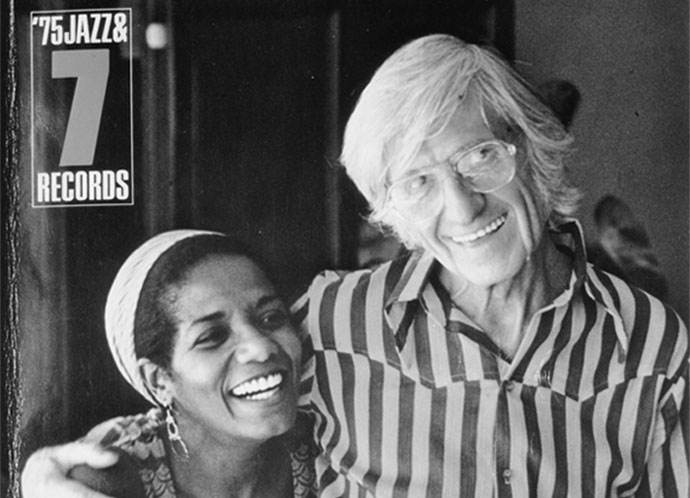 Miles Evans Two Part Harmony Part2
AAJ: Your dad changed the fabric of jazz. How will you continue that legacy? ME: It's
very difficult. As a kid, I asked my father, "How did you become a
sound innovator?" And he said, "Well, I took a little of this, a little
of that, a little of this, put it all together in a funnel, and it came
out as me." Of course it's not easy to become a great innovator like Gil
Evans, Miles Davis, [pianist] Duke Ellington, [saxophonists] John Coltrane, Charlie Parker and Lester Young, or [trumpeter] Louis Armstrong, to name just a few, but I can still go for it, work on it, and see if the magic happens. AAJ: Speaking of magic, what was it like growing up in your musical household? ME: It was unique, with my father there listening to all kinds of music, whether it was Miles Davis, Stevie Wonder, Frank Zappa,Sly and The Family Stone. Debussy, Stravinsky, Ravel or other musicians who came in with projects that they wanted my father to hear. There were times that people were over at our apartment, but my father could be very private, so he would be alone a lot as well. One of my earliest memories was when I was three years old; my father was saying to me "I have to work now." He'd be sitting there at the piano working, playing these beautiful chords and I'd be there silently, just watching him enjoying it as he worked. AAJ: Your mother, Anita, told me that your father would sit at the piano for weeks on end just playing a chord. Do you remember that? ME: Yes I do, and he would practice different voicings. I also remember the music with more chords. It was incredible, the way he came up with those voicings, not having sequencers, emulators and samples around. He had to imagine it all, like what a French horn would sound like on one of the voices or perhaps an oboe, a flute or a bass clarinet on other parts of the chord. What an amazing imagination he had.
ME: I remember enjoying it and having such a blast. When I was five, turning six, I went to Europe. Six, turning seven—Japan. Then eight, turning nine, in Europe again. What a life lesson. It was so incredible to be there, seeing those cities and hearing those fabulous concerts. AAJ: Apparently he wrote you into the contract and wouldn't go on tour unless you were written in; is that true? ME: Yes, for the most part. What an amazing dad, I was so lucky. The band members took us under their wings too, so at times it was like having 18 dads. AAJ: Tell me more about playing music with your father. ME: When I was about 13, we would sit in my room and I'd be playing trumpet and he'd be playing the melodica—either jazz or classical. I had started out much later than most kids, as my dad didn't believe in forcing me to play an instrument. He didn't want me to hate it and never play again once I got older. To start too young, is sometimes to end young. He'd either point out the chords or talk about phrasing. Later on he talked about timbre, the overtone series and much more. AAJ: So, he was like a mentor too? ME: Without a doubt. Then at age 17, I got my professional start when I went to London with him. He was touring with an all English orchestra and I sat in with them. From then on I continued playing with him and afterwards, with [bassist] Jaco Pastorius and others. AAJ: Did you have an opportunity to know Miles Davis? ME: Absolutely. I'd go to his place in the '70s, on 77th Street between Riverside and West End, and hang out with him and my father. I took some trumpet lessons with him in the '80s. During one of the lessons, Miles pulled out some music, which was pretty fascinating and difficult, and said (in a gruff voice), "Just play the notes, don't worry about the rhythm." He'd advise me to clap out the rhythm separately, then I'd sing the notes. Afterward, I'd sing the notes with the rhythm. When I went back to the music, I'd really know how to play it. It was a great lesson that made things much easier. It was really cool listening to his point of view. AAJ: What was his point of view? ME: It's really hard to sum it up but basically you have to really know where the note is. You have to hear it, whether in your head or out of your head but you have to be sure, in order to nail it. If you don't, you won't be able to put the right pressure on your lips or have the right speed, with air, to produce the note in a really beautiful way. That was an amazing help. |
|
 AAJ: Your
brother, Noah, told me that he thought all kids traveled the world with
their father and became roadies at age seven. What did you think?
AAJ: Your
brother, Noah, told me that he thought all kids traveled the world with
their father and became roadies at age seven. What did you think?